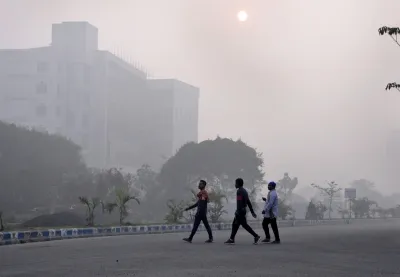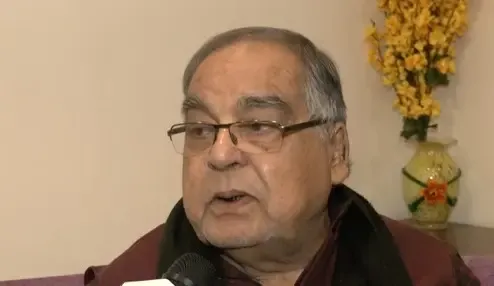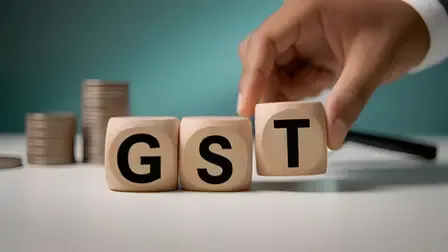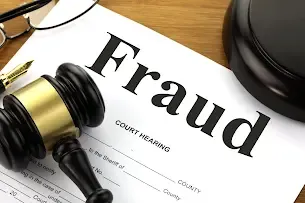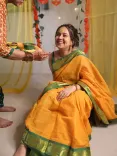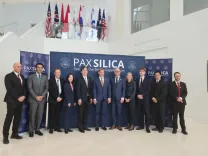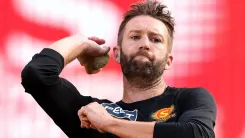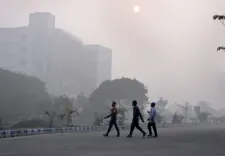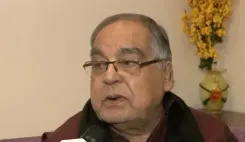JPC to Gather Public Feedback via Website on 'One Nation, One Election'
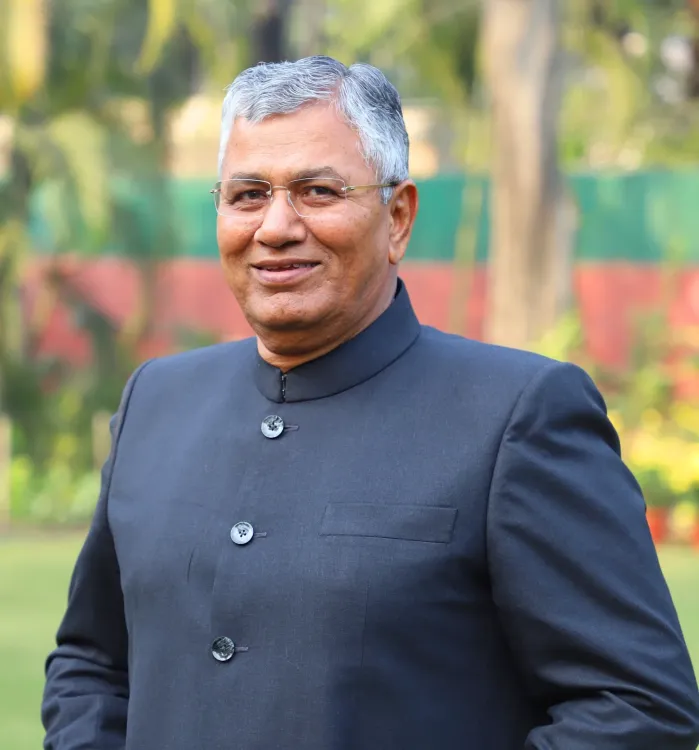
Synopsis
Key Takeaways
- JPC meeting focused on 'One Nation, One Election'
- Public feedback will be gathered via a dedicated website
- Expert presentations from legal authorities
- Potential for substantial savings through election synchronization
- Encouragement for broad public participation
New Delhi, March 11 (NationPress) In a notable advancement, the Joint Parliamentary Committee (JPC) on "One Nation, One Election" convened on Tuesday with two distinguished legal experts -- former Chief Justice of India, Ranjan Gogoi and former Chief Justice of the Delhi High Court, Rajendra Menon -- who presented comprehensive insights.
The Chairman P.P. Chaudhary expressed contentment with the enthusiastic involvement of Members of Parliament across political parties, who posed numerous inquiries during the discussion.
He highlighted that the JPC is functioning in the interest of the nation, rising above political divisions to ensure a fair and well-informed conversation.
All issues raised by members are being thoroughly addressed.
Looking ahead, the committee intends to invite more experts to offer additional perspectives on the matter.
To encourage public involvement, advertisements will soon appear in various newspapers and media platforms, urging citizens to express their views on the "One Nation, One Election" initiative.
These ads will include a QR code, allowing direct navigation to the official website for submitting feedback.
The next committee meeting is slated for March 17.
Moreover, a dedicated website will be established to enable wider public engagement, permitting both stakeholders and the general populace to share their opinions on this vital national concern.
Chaudhary, who chairs the JPC on ONOE, previously explained how the proposed 'poll model' would allow elected officials to concentrate on governance throughout their five-year term, significantly benefiting the nation.
A meeting of the JPC on ONOE took place last week, where members exhibited a ‘positive attitude’. The Constitution Amendment Bill on ONOE, currently under the JPC's examination, aims to synchronize Lok Sabha and state assembly elections, thus streamlining the electoral process.
The JPC, led by BJP's P.P. Chaudhary, consists of 39 members, including 27 from the Lok Sabha and 12 from the Rajya Sabha.
In a special interview with IANS, Chaudhary discussed the extensive changes the bill could introduce to the Indian political landscape and expressed hope that the Opposition would not resist the bill merely for the sake of opposition.
"Today's meeting is focused on presentations and interactions rather than strategy formation. Former Chief Justice Ranjan Gogoi will be present, facilitating discussions, including insights from former Chief Justice of the Delhi High Court, Rajendra Menon," he noted.
Addressing logistical concerns, Chaudhary highlighted that elections were held simultaneously across the nation from 1952 to 1967, even without modern resources like EVMs, VVPATs, and advanced technology.
"Back then, we lacked the resources available today. There were no EVMs, no VVPAT, and no sophisticated systems or technology. Yet, elections were conducted concurrently across the country. Now, we have made significant progress, and today, India is the world's third-largest economy. Therefore, it is not beyond our capability," he stated.
"We will invite our official witnesses from the Election Commission and IT ministries, along with those involved in technology, to explain how simultaneous elections can be executed. In today's technological age, it is not challenging to assemble all electoral resources at once," he further remarked.
Emphasizing the potential advantages of ONOE, Chaudhary asserted that synchronizing elections would lead to substantial savings, both direct and indirect, which would "greatly benefit" India.
"Once synchronization occurs, the direct and indirect benefits are significant. The direct savings amount to thousands of crores of rupees; indirect benefits could contribute around 1.6 percent to the GDP," he elaborated.
Responding to the Congress party's ongoing opposition to the proposal, Chaudhary remarked, "I believe that opposing merely for the sake of opposition is unjust. However, if someone genuinely perceives an issue, we will correct it. But if opposition persists after rectification, we have no remedy for that. Nonetheless, I remain optimistic that those opposing will ultimately support us wholeheartedly."
He added that many Congress leaders have privately voiced concerns about the disruptions caused by frequent elections.
"The time of politicians is not utilized for the duties they are elected to perform. Instead of focusing on law-making and serving the people for the entire five years, they become preoccupied with elections. Thus, the essential work that should be accomplished in a democracy is neglected," he stated.
Confident about achieving consensus, Chaudhary maintained that ONOE would not only benefit India but could also serve as a model for other democracies globally.
"We will reach a consensus without a doubt, and 'One Nation, One Election' is for the country's benefit. It is advantageous to elevate the nation's economy to the third position and beyond," he remarked.
"Once India accomplishes this, I believe that other established democracies worldwide will take notice and attempt to adopt similar practices, recognizing that India, being a vast democracy with countless voters, can successfully implement ONOE. If we can do it, why can't other democracies?" he concluded.


